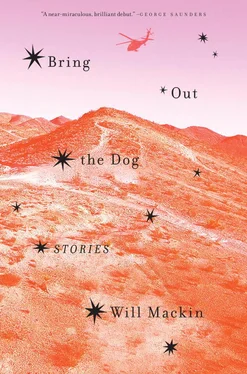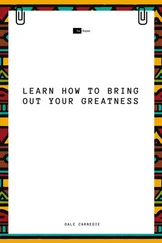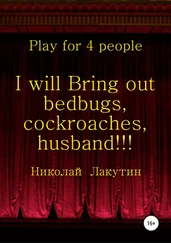Will Mackin - Bring Out the Dog
Здесь есть возможность читать онлайн «Will Mackin - Bring Out the Dog» весь текст электронной книги совершенно бесплатно (целиком полную версию без сокращений). В некоторых случаях можно слушать аудио, скачать через торрент в формате fb2 и присутствует краткое содержание. Город: New York, Год выпуска: 2018, ISBN: 2018, Издательство: Random House Publishing Group, Жанр: prose_military, на английском языке. Описание произведения, (предисловие) а так же отзывы посетителей доступны на портале библиотеки ЛибКат.
- Название:Bring Out the Dog
- Автор:
- Издательство:Random House Publishing Group
- Жанр:
- Год:2018
- Город:New York
- ISBN:978-0-812-99564-0
- Рейтинг книги:5 / 5. Голосов: 1
-
Избранное:Добавить в избранное
- Отзывы:
-
Ваша оценка:
- 100
- 1
- 2
- 3
- 4
- 5
Bring Out the Dog: краткое содержание, описание и аннотация
Предлагаем к чтению аннотацию, описание, краткое содержание или предисловие (зависит от того, что написал сам автор книги «Bring Out the Dog»). Если вы не нашли необходимую информацию о книге — напишите в комментариях, мы постараемся отыскать её.
Bring Out the Dog — читать онлайн бесплатно полную книгу (весь текст) целиком
Ниже представлен текст книги, разбитый по страницам. Система сохранения места последней прочитанной страницы, позволяет с удобством читать онлайн бесплатно книгу «Bring Out the Dog», без необходимости каждый раз заново искать на чём Вы остановились. Поставьте закладку, и сможете в любой момент перейти на страницу, на которой закончили чтение.
Интервал:
Закладка:
“Yes, now,” said Chuck.
Shit cut with water was even slipperier than pure shit. All around us, soldiers clung to one another, so as not to fall. Other soldiers set out on their own in halting steps. They all knew where they wanted to go. Some crouched, teeth bared, eyes slammed shut. Others stood their full height, arms outstretched, as if ready to throw lightning bolts. One soldier slipped and fell, landing hard in shit. Lying on his back, he told the story of a war that had been born to a mother, upon whom he wished a thousand dicks. We walked past him, undaunted. The trick was to walk as if there were no shit at all.
Inside the chow hall, the smell changed from shit to stir-fried garlic. A Korean outfit had won the latest contract, replacing the KBR chefs in their tall white hats. A Korean lady banged her spatula, took orders, and shook ingredients into her wok. Between customers, she wiped the wok clean with a paper towel, then poured in some oil, and steam rose, hissing.
“What you wan’?” she asked Chuck.
Chuck’s eyes went from chicken, to shrimp, to meat. “What kind of meat is it?” he asked.
“Meat!” she said.
“No, what kind, ” Chuck said.
“You wan’ meat?” she asked.
“Sure,” Chuck said.
So Chuck wouldn’t be alone, I got meat, too.
“What’s in the meat?” Skip asked.
A soldier behind us in line said, “Woof!”
The three of us sat down in the corner, near the stage, where a tuba and a trombone rested on their bells. A clarinet rested on a chair. Skip sat down, shut his eyes, and started to pray. One reason I liked Chuck so much was that he didn’t pray, or if he did, he didn’t make a big deal about it. He just sat there, not talking, perhaps thinking about his ex-wife, or his Harley back home in Texas, or maybe letting the situation unfold.
The tuba player returned from break wearing his ceremonial uniform, complete with bow tie, cummerbund, and silver braid. We sat before him in our dirty T-shirts and duct-taped boots, with dust in every crack and orifice, our hair slicked back with shit. The tuba player took his seat and lifted his instrument to his lap. The entire population of the chow hall appeared, inverted and blurry, in the polished brass bell.
Skip opened his eyes, looking as if he’d prayed for a tuba player, and there he was.
I forked some meat, cabbage, and a water chestnut, and put it in my mouth. The meat was chewy. Chuck’s jaw worked up and down. Skip, who also had a mouthful, flashed a momentary expression of concern.
“Good evening!” yelled the tuba player. He was alone on stage. His medals, awarded for perseverance in the accomplishment of administrative tasks, used to mean something before the war. They jingled as he adjusted himself in his seat. When someone asked him how he got those medals, I wondered, what did he tell them? What did he tell himself? To his credit, he didn’t seem to care. He looked happy with his instrument properly balanced and ready to play.
“What do you folks want to hear?” he asked.
Anything, nothing, go fuck yourself.
“All right,” said the tuba player. And he started to play.
Remain Over Day
The helicopters left us on a high plateau, in a fog of warm exhaust, late one spring night. They departed, rotors thumping, up and over the mountain on which we stood. A breeze pushed the oily fog off the plateau. Through night vision I watched its warmth tumble downhill, then snag on a patch of sagebrush. The plateau was surfaced in hard, luminous chalk. Hal stepped off its bright edge and into the valley, creating a seam in the night for the rest of us to fold into.
Digger followed Hal, Lex followed Digger, and so on, ducking into that seam, proceeding westward along a narrow footpath lined with sawgrass and wildflowers. Mooch followed Green, who followed Scrape. I watched the patrol stretch into the night, waiting to take my place at the end of the line. Lyle jumped off the plateau like a paratrooper. Goon stepped into the valley behind Lyle. Hank was supposed to go next, followed by Q, then me, but Hank and Q were having an argument. They stood chest to chest by the footpath, exchanging words, and I was too far away to understand why, let alone get there before Hank shoved Q, Q lunged at Hank, and the two men crashed into each other.
Hank and Q were Afghan soldiers, attached to us. But we didn’t claim them, necessarily, and they didn’t act like ours. Higher had forced them on us at the beginning of the deployment, six weeks prior, in order to make it look like their strategy was working—i.e., the Afghans were standing up while we were standing down. Nine years into the war, however, with no end in sight, we weren’t going anywhere. And as far as standing up went, Hank and Q had managed—until that night, at least—to stay out of the way and not cause any trouble.
Locked together, Hank and Q fell off the plateau and rolled downhill, bumping over rocks and crushing knots of sagebrush. Their old Soviet rifles, slung to their chests, clattered like beach chairs. Lasers shone back from the patrol, illuminating the commotion within its own dust cloud. I leapt off the plateau after Hank and Q, while Goon quit the footpath on a diagonal line of pursuit. I tripped over the bullhorn that Hank and Q took turns carrying, and Goon accidentally kicked one of their helmets. The Afghans rolled into a boulder, leaving Q, a hairy, slow-twitch endomorph, on top of Hank, a lanky, fine-boned gatherer of wool.
Q delivered a solid blow to Hank’s face, then another. Goon pulled Q off. I helped Hank to his feet.
“Fuckin’ idiot,” Goon said, shoving Q in the direction of the patrol.
Q’s chubby face jiggled in indignation. “Not me,” he said.
“Walk,” Goon ordered, pointing.
Q picked up his helmet and walked. Goon, muttering curses, fell in behind Q. The patrol started moving again. Hank stood with his head tilted back, trying to control a nosebleed.
I dug a bandanna out of my leg pocket. “Here,” I said, offering it to Hank, who, without looking down, reached out a wide, long-fingered hand.
Starlight filled Hank’s open palm and cast its shadow on the ground. I relinquished my bandanna and, as Hank’s fingers closed on it, I had the odd sensation of having seen Hank’s fingers slowly close on my bandanna once before. Not only that, it seemed as though I’d been on this mountain before, on a spring night exactly like this, watching Hank hold the bandanna to his face, hearing blood drip off his elbow and onto a stone.
Wind eased through the wildflowers. I felt each stem bend, every petal rise. I’d experienced déjà vus in the past, but never one this intense. Looking at the ground, for example, I was aware of every rock, pebble, and grain of sand, and I knew how each one had come to be. I sensed every ray of starlight that fell in the valley—on the winding river, on the sleeping cattle—and I could trace each one back in time to its cosmic source. It was a pleasant feeling, understanding how things were put together, not to mention knowing what was going to happen a few seconds before it did. My future self remained dumbstruck in the throes of that déjà vu, deep in enemy territory, as the troop moved farther away. As far as I could tell, however, there was nothing to be afraid of. There was a place for everything, and everything was in its place. But then, without warning, one grain of sand became no different from the next. Stars transformed into nothing special. The déjà vu collapsed, leaving me light-headed and short of breath on the side of that mountain.
Hank stood slightly uphill from me, holding the bullhorn. He looked out from under a purple lump that swelled over one eye.
Читать дальшеИнтервал:
Закладка:
Похожие книги на «Bring Out the Dog»
Представляем Вашему вниманию похожие книги на «Bring Out the Dog» списком для выбора. Мы отобрали схожую по названию и смыслу литературу в надежде предоставить читателям больше вариантов отыскать новые, интересные, ещё непрочитанные произведения.
Обсуждение, отзывы о книге «Bring Out the Dog» и просто собственные мнения читателей. Оставьте ваши комментарии, напишите, что Вы думаете о произведении, его смысле или главных героях. Укажите что конкретно понравилось, а что нет, и почему Вы так считаете.












